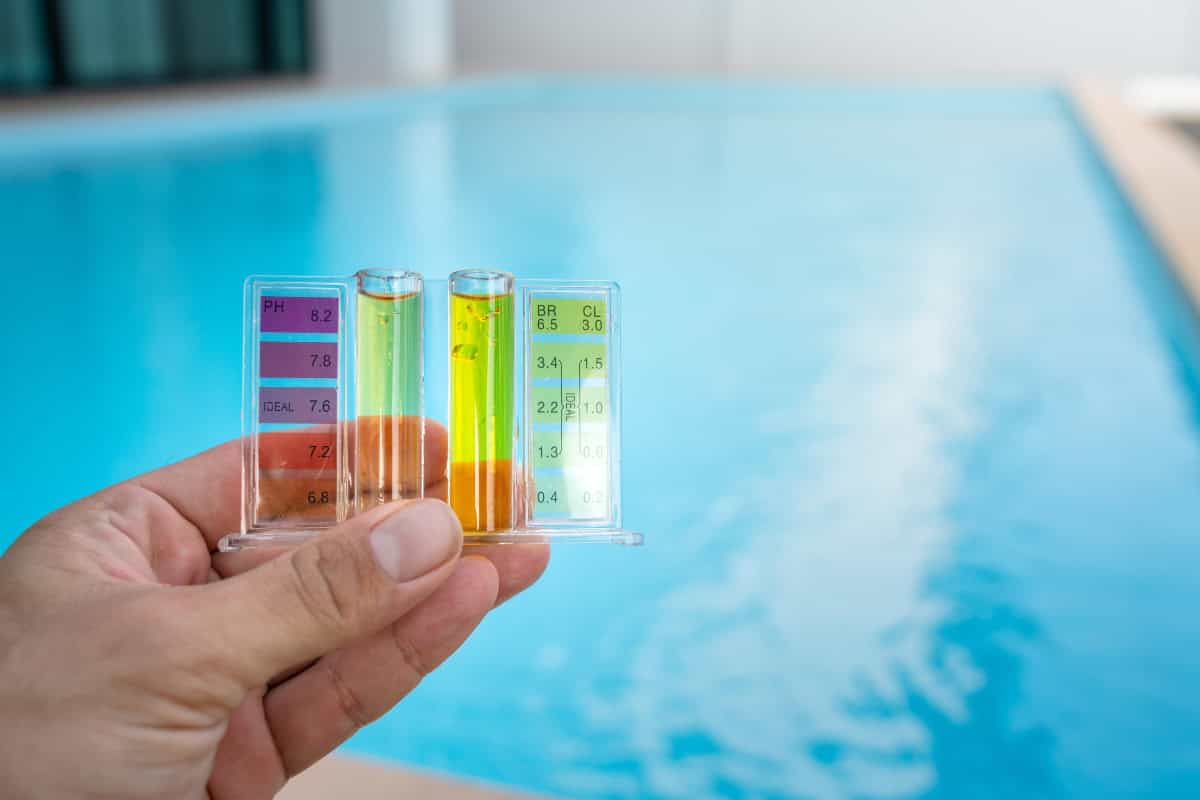What are pH Levels?

pH Levels: Everything You Need to Know For Pool Safety
A well-maintained pool isn’t just about sparkling water and a relaxing atmosphere—it’s also about safety. Properly balancing your pool’s pH level is one of the most critical factors in keeping your pool safe for swimming. Poor pH management doesn’t just dull your pool’s aesthetic; it can harm swimmers’ health and potentially damage equipment and surfaces.
Aqua Leisure Pools & Spas will walk you through everything you need to know about pH levels, why they matter, and how they affect pool safety. To take actionable steps to maintain balanced and safe pool water, contact our pool experts for help.
The Importance of pH Levels in Swimming Pools
Understanding pool pH levels starts with knowing what pH measures. The scale ranges from 0 to 14, where 7 is neutral. A pH below 7 is acidic, while a pH above 7 is alkaline.
Why Does pH Matter in Your Pool?
The ideal pH range for swimming pools is between 7.2 and 7.8, with the recommended goal is 7.4. This range ensures the pool water remains gentle on swimmers while being effective for pool chemicals like chlorine.
- Comfortable Swimming: Proper pH ensures water won’t irritate eyes or skin.
- Equipment Durability: It reduces the chance of corrosion or scaling on pool fixtures and surfaces.
- Effective Sanitization: Maintaining the right pH ensures chlorine works efficiently to kill bacteria and algae.
Keeping your pool’s pH in check ensures an enjoyable and safe swimming environment.
What Happens When pH Levels Are Unbalanced?
Neglecting your pool’s pH levels can result in serious consequences for swimmers and your pool equipment. Here’s what happens when levels go outside the optimal range:
Low pH Levels (<7.2)
Problems when pH is too acidic:
- Skin and Eye Irritation: Acidic water can sting the eyes and cause skin irritation for swimmers.
- Corrosion: Acidic water corrodes metal pool components like ladders, railings, pumps, and filtration pipes.
- Pool Surface Damage: Low pH can etch and degrade your pool liner, particularly in vinyl-lined pools.
High pH Levels (>7.8)
Problems when pH is too alkaline:
- Scaling and Mineral Buildup: High pH levels encourage calcium deposits on pool surfaces and plumbing, creating unsightly scaling.
- Cloudy Water: High pH levels are often the culprit behind murky, dull pool water.
- Reduced Chlorine Effectiveness: Alkaline water makes chlorine less effective, potentially leading to bacteria and algae growth.
Balancing pH is all about protecting your swimmers and pool from common, preventable issues.
Why pH Maintenance Is Essential for Pool Safety
Maintaining the right pH in your swimming pool isn’t just about comfort—it’s crucial for safety. Balanced water:
- Protects swimmers from skin and eye irritation.
- Keeps harmful bacteria and algae at bay.
- Ensures pool chemicals, like chlorine, are effective.
- Extends the lifespan of your pool equipment and surfaces.
Neglecting pH balance can compromise the health and safety of bathers while leading to costly repairs. A few simple steps, done consistently, can make all the difference.
Enjoy Hassle-Free Pool Maintenance with Aqua Leisure
At Aqua Leisure, we take pride in helping pool owners like you maintain a safe and enjoyable swimming environment. From pool and spa sales to ongoing maintenance services and premium-grade chemicals, we offer everything you need to keep your pool in top shape.
Don’t leave your pool’s pH levels to chance. Contact our friendly team today for personalized advice, expert service, and products tailored to your pool’s unique needs.
Posted by Aqua Leisure Pools & Spas in Pools

